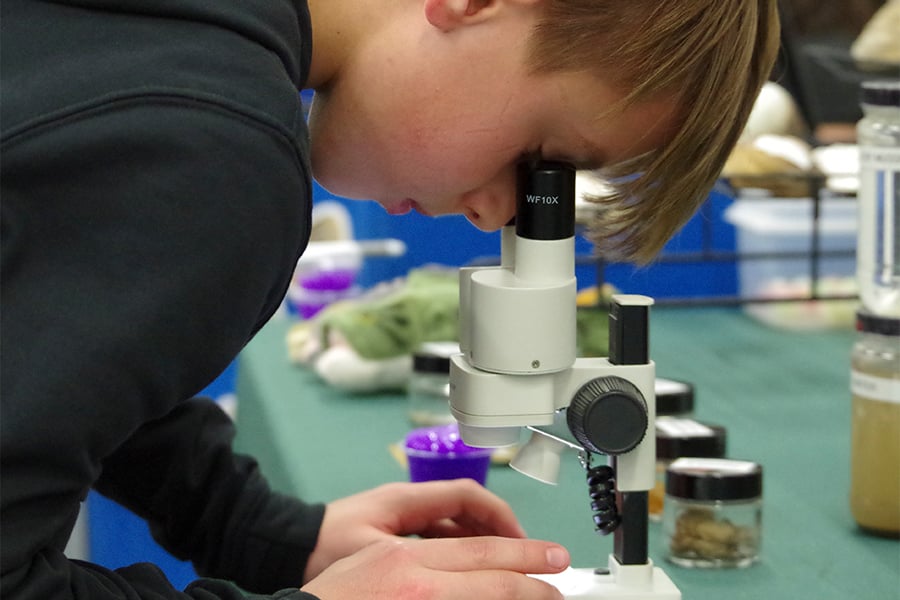
School Programs
Connect your students to the natural sciences and DuPage County’s cultural history with Forest Preserve District field trips and classroom programs designed to meet national learning standards, including Common Core and Next Generation Science Standards.
Our highly educated, professional program leaders offer hands-on experiences that spark students’ natural curiosity and initiate a desire to dig deeper into rich age-appropriate content. Many programs are rooted in STEM (science, technology, engineering, and mathematics), and each is tailored to a specific learning level.
We offer programs throughout the academic year (September – May). Most are available Monday – Friday by request, but all require at least three weeks notice. We also offer teacher professional-development opportunities and resources for use in and away from the classroom.
